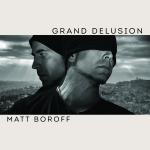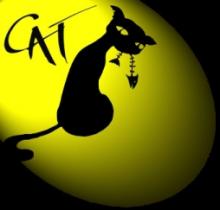Matt Boroff
 Biografie
BiografieIt’s rare in this day and age to find a veteran artist who hasn’t settled into a comfortable groove after more than 20 years. But Matt Boroff is just such an artist: continually pushing at the boundaries of his craft, taking his singularly passionate brand of music to new heights. Over a decades-spanning career that’s seen him share the stage with such critically acclaimed acts as Nirvana, BRMC, Calexico, Kyuss and Queens of the Stone Age (to name a few), this multitalented singer, songwriter and guitarist has traversed a diverse cross-section of musical landscapes, from blistering rock-and- roll peaks towindswept desert highways and gardens of indie-rock ambience. But through it all, Boroff’s vividlyricism, inventive guitar work and uncompromising vision of music as a vehicle for stirring the soul haveremained constant.
Boroff spent much of the Nineties performing his own brand of experimental noise-rock across the northeast and playing solo gigs in New York City. In 2000, he relocated to Austria, where he met drummer Little Konzett and formed the basis of what would become Matt Boroff & the Mirrors, releasing a self-titled debut album to critical acclaim in 2004. With full-time bassist Rolf Kersting added to the fold, the band punched up its sound with slabs of driving rock and roll, sun-bleached grooves and jittery evocations of West Coast punk on 2006’s “Ticket to Nowhere.” As the band gelled and continued amassing a fervent following, it ventured even further into new realms on 2008’s “Elevator Ride,” conjuring images of Spaghetti Westerns and sweeping desert landscapes.
Given Boroff’s penchant for cinematic imagery, it was hardly surprising when five tracks from “Elevator Ride” appeared on the soundtrack to the 2009 film “Little Fish, Strange Pond.” Boroff contributed some instrumental passages as well, exploring an orchestral feel that spilled over onto his 2009 solo debut, “Reaching for Sparks.” Weaving muted arrangements (guitar, piano, strings, horns and timpani) with reflective, elliptical lyrics, it invited comparisons to the likes of Iron & Wine and Nick Drake, cementing Boroff’s reputation for creating arresting music across a variety of styles.
“Reaching for Sparks” was a well-received departure, but Boroff wasn’t content to simply continuedown the same path. In 2012, he released the four-song EP “Filling in the Cracks,” a concise mini-album that connected the dots between the musical imagery of “Elevator Ride” and the atmospherics of“Reaching for Sparks.” Once again, Boroff had confounded listeners’ expectations, leaving them eager tosee where he was headed next.
Boroff’s second solo album, “Sweet Hand of Fate,” fulfilled and exceeded the promise of “Filling in the Cracks,” combining two standouts from that EP (including the anguished “Garbage Man”, featuring aharrowing guest vocal from alt-rock legend Mark Lanegan) with such high-water marks as with “Goingto the Hypnotist” (which evokes the ragged experimentalism of Tom Waits), the ethereal menace of "My Black Heart” and the searching urgency of the title track.
All of which has paved the way for Boroff’s latest solo release, the beautiful and arresting “Grand Delusion.” Working with an impressive roster of collaborators including producer/multi-instrumentalist Alain Johannes (QOTSA, PJ Harvey, Them Crooked Vultures, Desert Sessions), drummer Jack Irons (Red Hot Chili Peppers, Pearl Jam) and, again, vocalist Mark Lanegan (Screaming Trees, QOTSA), Boroff oncemore plunges listeners into cinematic, fully realized musical worlds that resound with a brooding intensity.
Pulsating grooves, screaming guitars and flickering organ notes combine to create a series of intoxicating moodscapes that defy easy categorization while ringing with the familiar windswept feel of his desert rock beginnings. As the album title suggests, Boroff paints a portrait of a world where self-deception has reached critical mass: his targets include the hostile bark of nationalism, warmongering and addiction togreed. But in spite of troubles that challenge one’s faith in humanity, Boroff maintains an unwavering compassion for the human condition (“I just wanna dissolve myself in you”) while asserting that empathy doesn’t always come easy (“it’s hard to see love behind your mask”).
Throughout, it’s Boroff’s distinct baritone—sometimes smoky, sometimes pleading, always unmistakably cool—that anchors the proceedings, recalling the elemental wisdom of Leonard Cohen one moment, channeling the gritty passion of Waits or Nick Cave the next.
“Grand Delusion” is the inspiring work of an artist at the peak of his powers: conjuring spellbinding sonic panoramas with the help of an all-star lineup, confronting a skewed world with his own unique worldview and equally distinctive delivery, and scaling new heights—as he undoubtedly will continue to do for years to come.
Quelle: http://www.mattboroff.com www




